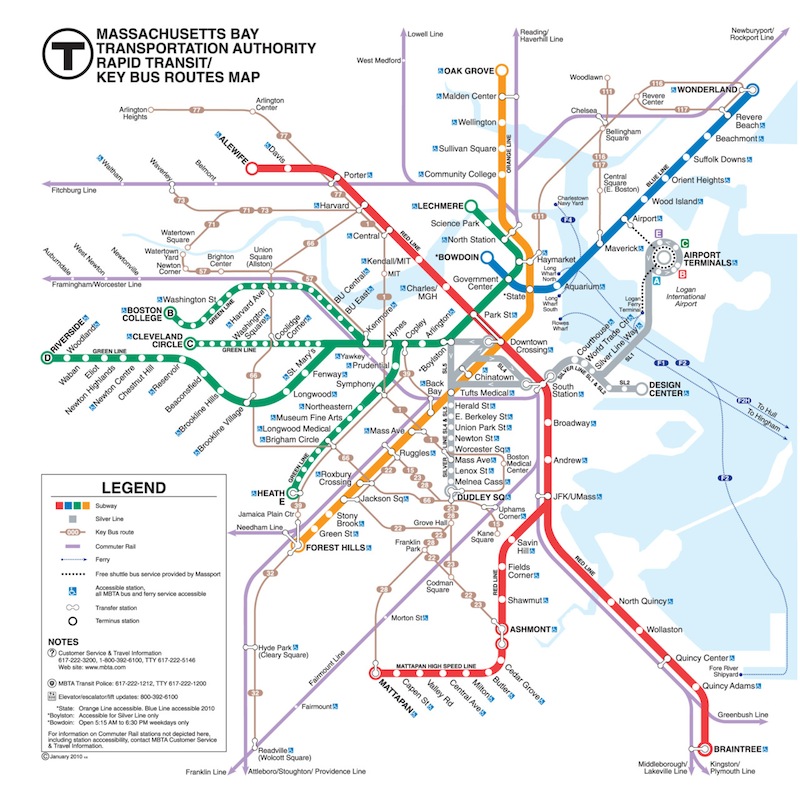Free as in painstaking cartography labor
There are ways in which I think cartography is an under-appreciated and poorly understood field, some of which are enumerated in occasional rants on the Axis Maps blog and elsewhere. But these are usually philosophical or academic matters, and as someone who is making a career of cartography, increasingly I’ve been trying to offer this piece of advice (which isn’t as obvious as it should be) to aspiring map people: cartography skills are valuable, as in dollar bills.
Hence my—and some peers’—disappointment in the most recent “challenge” from the MBTA, Greater Boston’s transit agency. To summarize a somewhat lengthy description page, they are essentially seeking new design ideas for their standard subway map—in the space of three weeks, for free, and with no rights retained by the cartographer. And if you win this contest? You get… um, fleeting glory, apparently.

I want to like the idea. The MBTA carries crippling debt, and as a somewhat regular user of the system I don’t want to see its service diminished or my fares increased, so I applaud any other funding or savings. But—and I’m looking for some kind of “third rail” wordplay here—this time they strike a nerve with those of us who have mapping jobs.
The T has run contests before. The most successful was a few years ago at the dawn of its open data age, resulting in some cool visualizations and interesting apps using schedule data, which shortly thereafter was supplanted by real-time tracking. These previous contests, though, were very much about openness. Yes, the clever angle was to get the community to create products at no cost to the agency, but at least these products were not owned by the agency. And there totally were prizes.
From the outside it’s easy to mistake modern cartography for a free endeavor driven by some desire to improve the world. Indeed, we do have a few altruistic motives, and the latest trends are all about openness: open data, open source code, etc. But even these things are not always free. Free to use, yes, but often enough someone has paid for them to be made in the first place. And this model doesn’t really apply to design. Good design is a part of any project, open or not, but when the job itself is design, we don’t jump at the chance to do it for someone else without compensation just because it’s fun. Like everyone else in the world, we do this to earn a living.
In short, if you can design a subway map that’s good enough for millions of people to use on a daily basis, you are very good at this. Maps are easy. Good maps are not. Your skills are valuable. Make maps for fun when it’s for your own satisfaction or for the causes you champion, but recognize your worth when it’s for others’ satisfaction. And make them recognize your worth, too.
In any case, while we’re on the subject, do enjoy Cameron Booth’s MBTA map redesign—which the MBTA can’t have for free—and Peter Dunn’s time-based map.

8 Comments